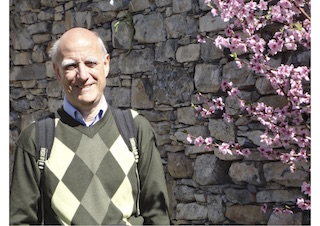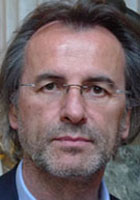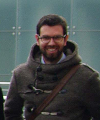Studying at the University of Verona
Here you can find information on the organisational aspects of the Programme, lecture timetables, learning activities and useful contact details for your time at the University, from enrolment to graduation.
Academic calendar
The academic calendar shows the deadlines and scheduled events that are relevant to students, teaching and technical-administrative staff of the University. Public holidays and University closures are also indicated. The academic year normally begins on 1 October each year and ends on 30 September of the following year.
Course calendar
The Academic Calendar sets out the degree programme lecture and exam timetables, as well as the relevant university closure dates..
| Period | From | To |
|---|---|---|
| Sem. IA | Oct 1, 2014 | Nov 16, 2014 |
| Sem. IB | Nov 17, 2014 | Jan 18, 2015 |
| Sem. IIA | Feb 23, 2015 | Apr 19, 2015 |
| Sem. IIB | Apr 20, 2015 | Jun 7, 2015 |
| Session | From | To |
|---|---|---|
| Sessione Estiva (Esami sospesi dal 14 al 16 luglio) | Jun 8, 2015 | Jul 31, 2015 |
| Sessione Autunnale | Sep 1, 2015 | Sep 30, 2015 |
| Sessione Invernale | Jan 18, 2016 | Feb 21, 2016 |
| Session | From | To |
|---|---|---|
| Sessione Estiva | Jul 14, 2015 | Jul 16, 2015 |
| Sessione Autunnale | Nov 10, 2015 | Nov 12, 2015 |
| Sessione Invernale | Mar 14, 2016 | Mar 17, 2016 |
| Period | From | To |
|---|---|---|
| Festa di Ognissanti | Nov 1, 2014 | Nov 1, 2014 |
| Festa dell'Immacolata Concezione | Dec 8, 2014 | Dec 8, 2014 |
| Vacanze Natalizie | Dec 22, 2014 | Jan 6, 2015 |
| Vacanze Pasquali | Apr 2, 2015 | Apr 7, 2015 |
| Festa della Liberazione | Apr 25, 2015 | Apr 25, 2015 |
| Festa dei lavoratori | May 1, 2015 | May 1, 2015 |
| Festa del S. Patrono S. Zeno | May 21, 2015 | May 21, 2015 |
| Festa della Repubblica | Jun 2, 2015 | Jun 2, 2015 |
| Vacanze Estive | Aug 10, 2015 | Aug 16, 2015 |
Exam calendar
Exam dates and rounds are managed by the relevant Humanistic Studies Teaching and Student Services Unit.
To view all the exam sessions available, please use the Exam dashboard on ESSE3.
If you forgot your login details or have problems logging in, please contact the relevant IT HelpDesk, or check the login details recovery web page.
Should you have any doubts or questions, please check the Enrollment FAQs
Academic staff
 alex.arcozzi@univr.it
alex.arcozzi@univr.it

Avezzu' Guido
 guido.avezzu@univr.it
guido.avezzu@univr.it
 augusto.barbi@univr.it
augusto.barbi@univr.it
 alberto.cavarzere@univr.it
alberto.cavarzere@univr.it
 daniela.ceoletta@univr.it
daniela.ceoletta@univr.it

Chiecchi Giuseppe
 giuseppe.chiecchi@univr.it
giuseppe.chiecchi@univr.it
 +39 045802 8117
+39 045802 8117

Mastrocinque Attilio
 attilio.mastrocinque@univr.it
attilio.mastrocinque@univr.it
 +39 045802 8386
+39 045802 8386
 linda.napolitano@univr.it
linda.napolitano@univr.it
 carlotta.salettisalza@univr.it
carlotta.salettisalza@univr.it
 ivan.valbusa@univr.it
ivan.valbusa@univr.it
 lucia.vantini@univr.it
lucia.vantini@univr.it
 gianmaria.varanini@univr.it
gianmaria.varanini@univr.it
Study Plan
The Study Plan includes all modules, teaching and learning activities that each student will need to undertake during their time at the University.
Please select your Study Plan based on your enrollment year.
1° Year
| Modules | Credits | TAF | SSD |
|---|
Lingua straniera competenza linguistica liv. b1 (informatizzato)Un insegnamento a scelta2° Year activated in the A.Y. 2015/2016
| Modules | Credits | TAF | SSD |
|---|
Un insegnamento a scelta Uno o due insegnamenti a scelta per un totale di 12 cfuUn insegnamento a scelta per un totale di 6 cfuUn insegnamento a scelta3° Year activated in the A.Y. 2016/2017
| Modules | Credits | TAF | SSD |
|---|
Da due a quattro insegnamenti a scelta per un totale di 24 cfuUno o due insegnamenti a scelta per un totale di 12 cfu| Modules | Credits | TAF | SSD |
|---|
Lingua straniera competenza linguistica liv. b1 (informatizzato)Un insegnamento a scelta| Modules | Credits | TAF | SSD |
|---|
Un insegnamento a scelta Uno o due insegnamenti a scelta per un totale di 12 cfuUn insegnamento a scelta per un totale di 6 cfuUn insegnamento a scelta| Modules | Credits | TAF | SSD |
|---|
Da due a quattro insegnamenti a scelta per un totale di 24 cfuUno o due insegnamenti a scelta per un totale di 12 cfu| Modules | Credits | TAF | SSD |
|---|
Legend | Type of training activity (TTA)
TAF (Type of Educational Activity) All courses and activities are classified into different types of educational activities, indicated by a letter.
Roman History (i p) (2015/2016)
Teaching code
4S02144
Credits
12
Coordinator
Attilio Mastrocinque
Language
Italian
Also offered in courses:
- Roman History (i) of the course Bachelor’s degree in Humanities
- Roman History (p) of the course Bachelor’s degree in Humanities
- Roman History (i p) - I MODULO PARTE (I) of the course Bachelor’s degree in Humanities
- Roman History (i p) - II MODULO PARTE (P) of the course Bachelor’s degree in Humanities
- Roman History (i) of the course Bachelor’s degree in Cultural Heritage
The teaching is organized as follows:
I MODULO PARTE (I)
Credits
6
Period
Sem. IA
Academic staff
Attilio Mastrocinque
II MODULO PARTE (P)
Credits
6
Period
Sem. IB
Academic staff
Attilio Mastrocinque
Learning outcomes
Module: I MODULO PARTE (I)
-------
knowledge of the main topics of Roman history.
Educational purposes: knowledge of the main topics of Roman history.
Prerequisites: basic knowledge of ancient history and Latin.
Subject of the course: The birth of the Roman Empire
Didactic method: normal lessons will be held, the discussed passages will be given (also in translation) to the students.
Form of the exam: oral exam
The course is divided into two parts:
- the first consists in the 36 lessons, devoted to Caesar, Augustus and Tiberius; students will be provided with images and texts, which will be at their disposal online;
- the second part consists in the study of 1) Svetonius, Life of Augustus; 2) Res gestae divi Augusti; 3) Plutarch, Life of Caesar; 4) Tacitus, Annales books I and II. (Choose an edition with commentary).
Module: II MODULO PARTE (P)
-------
Educational purposes:
The course is aimed at teaching some important topics concerning the early Roman Empire.
Subject of the course: The Flavians
Texts to be read:
1) Tacitus, Historiae.
2) Passages that will be discussed during the course.
Didactic method: normal lessons will be held; the discussed passages and images will be at disposal (also in translation) in the internet site of the University of Verona, E-Learning. Students who are unable to attend one or more lessons will use mp3 records, texts, and images on the E-learning platform of the University.
Form of the exam: oral exam
Program
Module: I MODULO PARTE (I)
-------
Prerequisites: basic knowledge of ancient history and Latin.
Subject of the course: The birth of the Roman Empire
Didactic method: normal lessons will be held, the discussed passages will be given (also in translation) to the students.
The course is divided into two parts:
- the first consists in the 36 lessons, devoted to Caesar, Augustus and Tiberius; students will be provided with images and texts, which will be at their disposal online;
- the second part consists in the study of 1) Svetonius, Life of Augustus; 2) Res gestae divi Augusti; 3) Plutarch, Life of Caesar; 4) Tacitus, Annales books I and II. (Choose an edition with commentary).
Module: II MODULO PARTE (P)
-------
Subject of the course: The Flavians
Prerequisites: knowledge of Roman history and Latin language at a basical level.
Texts to be read:
1) Tacitus, Historiae.
2) Passages that will be discussed during the course.
Didactic method: normal lessons will be held; the discussed passages and images will be at disposal (also in translation) in the internet site of the University of Verona, E-Learning. Students who are unable to attend one or more lessons will use mp3 records, texts, and images on the E-learning platform of the University.
Examination Methods
Module: I MODULO PARTE (I)
-------
oral exam
Module: II MODULO PARTE (P)
-------
oral exam
Type D and Type F activities
Modules not yet included
Career prospects
Module/Programme news
News for students
There you will find information, resources and services useful during your time at the University (Student’s exam record, your study plan on ESSE3, Distance Learning courses, university email account, office forms, administrative procedures, etc.). You can log into MyUnivr with your GIA login details: only in this way will you be able to receive notification of all the notices from your teachers and your secretariat via email and soon also via the Univr app.
Student mentoring
Linguistic training CLA
Gestione carriere
Practical information for students
Documents
| Title | Info File |
|---|---|
|
|
pdf, it, 325 KB, 02/05/23 |
|
|
pdf, it, 212 KB, 02/05/23 |
|
|
pdf, it, 131 KB, 02/05/23 |
Graduation
Documents
| Title | Info File |
|---|---|
|
|
pdf, it, 99 KB, 13/10/23 |
|
|
pdf, it, 101 KB, 10/04/24 |

































